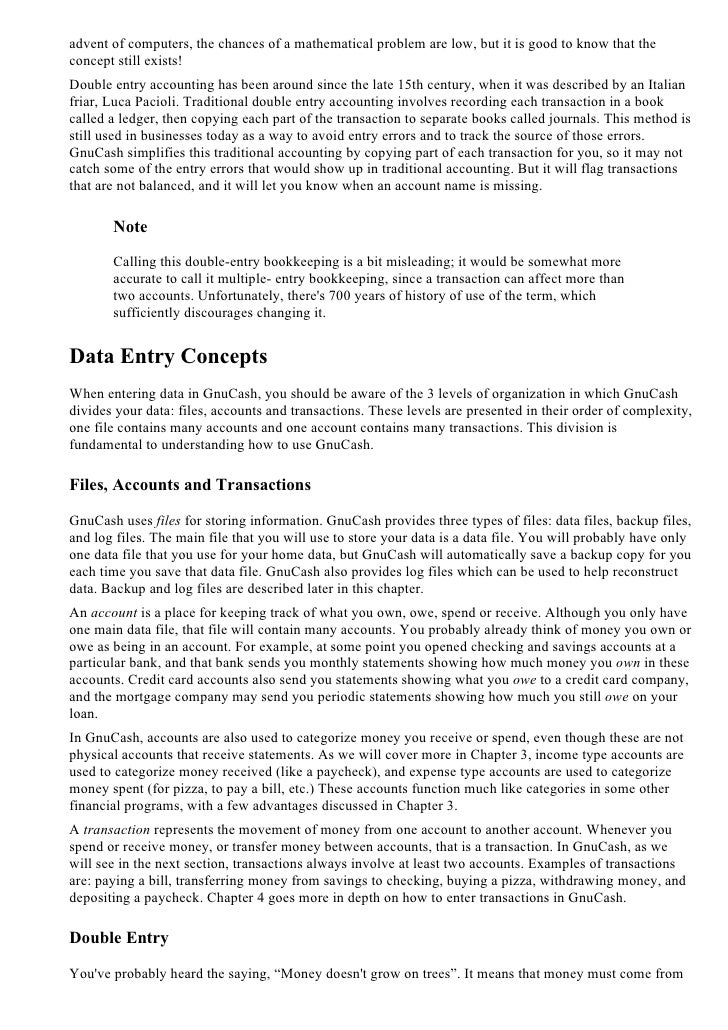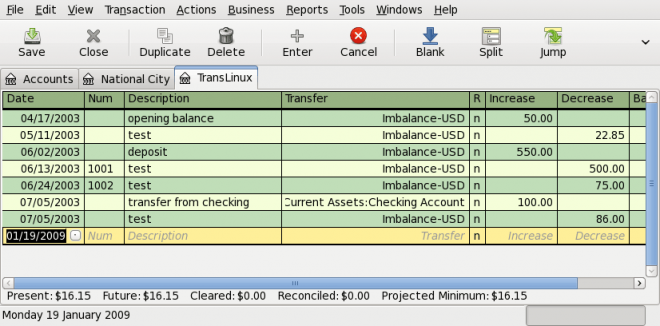

In my opinion if you want to get the most out of GnuCash (or any accounting software, really), you need to get into the habit of balancing your accounts more frequently than 2-3 times a year. In between, it's not really accurate, so looking at reports is meaningless. First, ten credit cards, a handful of bank accounts and then more complex ones (splitwise, brokers, crypto. It takes me hours spread over multiple days to get all my finances in sync. I sync up with gnucash maybe 2-3 times a year. Then all I have to do is tinker with the specific numbers, not with the accounts. In both cases, once I get the detailed splits right one time, there is zero marginal effort to have GnuCash reproduce that detail for the next transaction. GnuCash's big labour-saving gifts to me are: the scheduled transaction, and filling in details of a previous transaction into a new transaction. When it gets complicated, I stop and think: what goal does this bookkeeping task serve? Is it worth it? So, are you doing some work only to make the books precise, not to advance your goals? Can you simplify that work? What keeps me mostly out of the rabbit hole is to stop and think: what is there purpose of entering this transaction detail, or that entire investment account? My goals are things like: to confirm that the credit card statement has no fraudulent entries, to be sure I won't overdraw my chequing account, to give input to my tax accountant for income tax preparation, to collect my input tax credit for my small business GST (VAT). I have kept personal and small business books, in multiple currencies, in GnuCash for many years. It should be possible to have exactly correct numbers. I sympathise with falling down the rabbit hole. Stocks, crypto etc: Each individual transaction? Each security/coin?Įxpense accounts: Just one large one or granular? Gross vs net salary: Taxes, health insurance, 401k? Which level of complexity do you use in gnucash?

What is your experience? Anyone having similar issue? I am at the point where I question the value of using gnucash in the first place.
#Gnucash book Offline
And once I get into cleaning up my gnucash file, I start tidying up again, coping stock shares from one broker to the other, bitcoin from one exchange to an offline wallet. But then I don't really see the whole net worth. For example, crypto/stocks/investments, only putting the money I invested in an Expenses account. Many times I attempted to simplify things. He is the polar opposite: No financial tracking whatsoever. To add more complexity: I am about to combine finances with my spouse. Result: I sync up with gnucash maybe 2-3 times a year. And once I start, I want everything tidy and neat. And even on longer periods, I end up accumulating too much. I can't spend time every day to keep gnucash in sync. Here is my experience over the past ten years: I am a person who loves data and order but it really takes me commitment to focus on this.
#Gnucash book manual
But this comes at a cost: It has close to zero automation, all is manual labor and getting down the rabbit hole is easy. I love it and with multi currency support, double entry booking, splits pretty much anything (from living in separate countries to crypto currency) can be done. Inverted_rate = inverted_rate.quantize(Decimal( '.I've been using gnucash for over ten years. # Save the price in the exchange currency, not the default. Log(INFO, "Creating entry for %s, %s, %s, %s",īase_currency.mnemonic, currency.mnemonic, (), amount) filter(Price.currency = currency) # ) if not has_rate: filter(Price.date = ()).first() # has_rate = ( # (Price) #.
#Gnucash book update
# todo: if the price differs, update it! # exists_query = exists(rates_query) has_rate = currency.prices. Write operation! """īase_currency = self.get_default_currency()Ĭurrency = self.get_by_symbol(rate.symbol) Def import_fx_rates( self, rates: List): """ Imports the given prices into database.


 0 kommentar(er)
0 kommentar(er)
